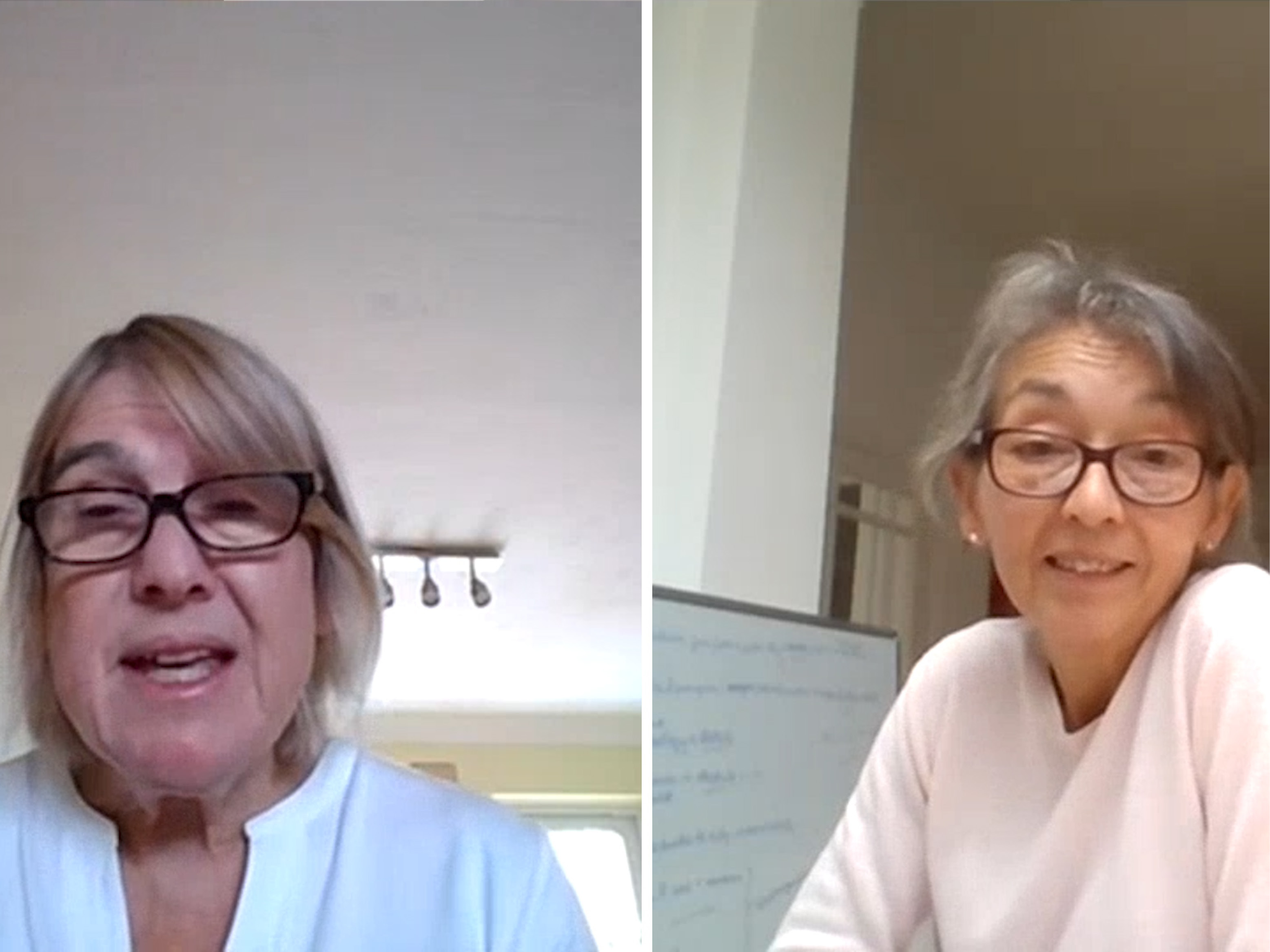In September 2020, we ran the programme ‘Visions of Feminist Peace’, in partnership with the Women's International League for Peace and Freedom (WILPF), to explore the potentialities of ‘feminist peace’ as an analytic framework and political aim, as well as its inherent limitations and exclusions. It did not run, as so many at this time will be familiar with, as our best laid plans and hopes had envisioned pre-pandemic. Through panel discussions, music and poetry, we heard the voices, knowledge, passion, anger, hope and desires of many as they engaged with, reflected on and articulated their visions of peace.
 Introducing Visions of Feminist Peace
Professor Christine Chinkin and Louise Arimatsu discuss the origins of the Visions of Feminist Peace programme, a series of events bringing together academics, advocates, practitioners, activists, artists, and students to showcase the plurality of peace visions, experiences, and discontents.
Introducing Visions of Feminist Peace
Professor Christine Chinkin and Louise Arimatsu discuss the origins of the Visions of Feminist Peace programme, a series of events bringing together academics, advocates, practitioners, activists, artists, and students to showcase the plurality of peace visions, experiences, and discontents.
Panels and performances
In bringing together academics, policy makers, peacebuilders, lawyers, activists, poets and musicians, the programme was designed to bridge the theory-practice divide and to dismantle the silos that exist between professions. It showcased the multiple and multi-sited experiences and perspectives on both peace and feminism, including what a gender just peace would entail. Although anchored in international law, the insights that ensued traversed broader terrains beyond traditional engagements by international lawyers. What was clear was that feminism’s history alongside war and colonialism made it a complex and complicated framework through which to explore peace. This point is especially pertinent as 2020 sees anniversary celebrations for Women, Peace and Security, the Beijing Platform for Action and CEDAW. As Suhaiymah Manzoor Khan asked in her poem A 20 point manifesto for women living in genocidal times, “…100 years for who?”
It was also made repeatedly clear that the space for women in peace and security has been both hard won and is shrinking, in terms of resources, urgency and emancipatory potential. Many contributors working in different spaces queried the gains made in the last two decades of the WPS agenda and the lack of built in enforcement or accountability mechanisms, especially given its state-centred character.
International Law and a Gender-Just Peace
A discussion among international lawyers and experts, this panel explores what might be the components of a feminist peace, how such a vision might be possible in today’s international law and what changes to the structures of international law might be needed.
Watch event recording
Can we Archive Memories? Greenham Common Women’s Peace Camp and beyond
“Greenham Woman Everywhere” is a project to interview the women who formed the Greenham Common Peace Camp, which was established to protest nuclear weapons being placed at RAF Greenham Common in Berkshire, between 1981 – 2000. This special panel event will include a discussion from the organisers of the Greenham Woman Everywhere project alongside LSE Library archivists, where we will explore some of the issues around archiving memories such as those of Greenham Common and beyond.
This event is co-hosted by the Centre and the LSE Library
Watch event recording
Transforming Power to Put Women at the Heart of Peacebuilding
A new discussion paper Transforming power to put women at the heart of peacebuilding, a collection of regional-focused essays on Feminist Peace and Security will be launched on 21st September 2020. This day marks World Peace Day, and launches a series of events leading up to the Open Debates for Women Peace and Security and the 20th Anniversary of UN1325 resolution.
This event is hosted by OXFAM.
Strategies & Practices for Gender-Just Peacebuilding
This panel is a discussion among women peacebuilders, exploring the strategies pursued by peacebuilders in reimagining and rearticulating peaceful geographies. The discussion will explore what constitutes a feminist peace and strategies to pursue it, as well as how we might articulate peace as plural, complex, intersectional and multi-sited.
Watch event recording
How Feminist Peace Can Transform Power, People, and Our Planet
Join feminist peace activists and WILPF leaders Joy Onyesoh, Amani Beainy, Jamila Afghani, Melissa Torres and Madeleine Rees for a frank discussion and critical analysis of how feminist peace can transform the systems of power within our societies that generate inequality, violence, and environmental degredation.
Together, panelists will explore feminist analysis, stories, and alternative paths toward change that centre the lived realities and experiences of women around the world.
This event is hosted by the Women's International League for Peace and Freedom (WILPF)
Watch poet Suhaiymah Manzoor-Khan perform two poems that critically engage with the concept of ‘feminist peace’.
Watch here.
Watch a performance by Millicent Chapanda, traditional mbira player, percussionist, singer, dancer and storyteller.
Watch here.
The Citizens of the World Choir will perform via livestream, reflecting on the concept of ‘feminist peace’.
Watch here.
Watch a performance by Amrit Kaur Lohia, a singer-songwriter, Sarangi player and vocalist in genres of Punjabi folk, R&B and soul.
Watch here.
